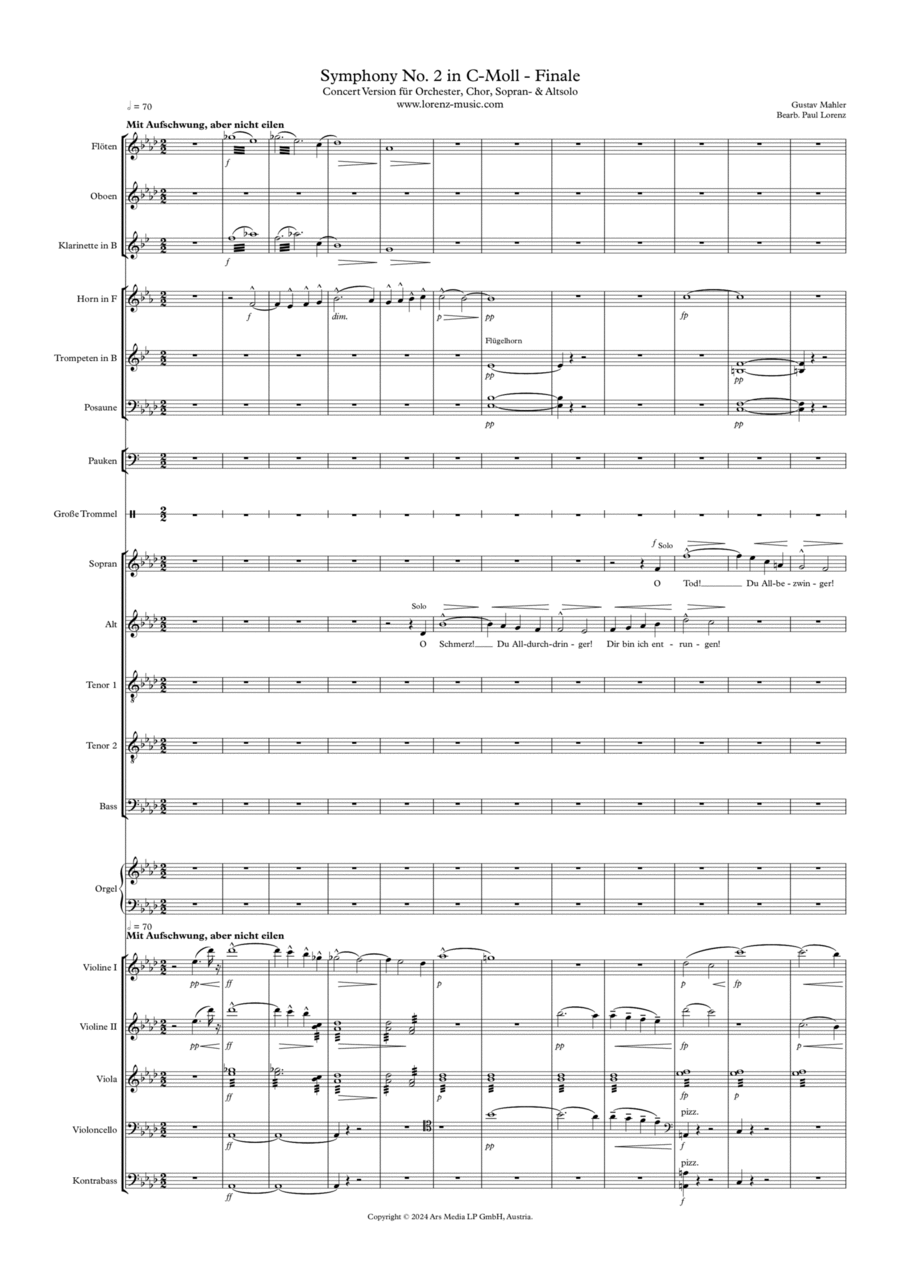Full Orchestra - Level 3 - Digital Download SKU: A0.1366865 By Artyfile. By Gustav Mahler. Arranged by Paul Lorenz. 20th Century,Classical,Film/TV,Praise and Worship,Romantic Period. 42 pages. Paul Lorenz #951198. Published by Paul Lorenz (A0.1366865). Paul Lorenz's Majestic Arrangement of Mahler's Symphony No. 2 Finale Rediscovering a Masterpiece: The Finale of Mahler's Symphony No. 2 Experience the grandeur of Gustav Mahler's Symphony No. 2 like never before with Paul Lorenz specially arranged concert version. Meticulously crafted for orchestras, soloists, and choirs, this edition brings the awe-inspiring 'Resurrection Symphony' to a wider audience. Its adaptability makes it perfect for a diverse range of ensembles, from full orchestras to chamber groups, ensuring that the magnificence of this monumental work is accessible to all. Elevating Performance Standards Paul Lorenz's expert arrangement encapsulates the essence of Mahler's vision, offering an exquisite balance between authenticity and practicality. The orchestration includes flutes, oboes, clarinets, horns, trumpets, trombones, timpani, organ, strings, and a four-part choir, creating a rich tapestry of sound. This version is ideal for smaller ensembles seeking to perform a large-scale work without compromising on quality. It's a testament to the timeless appeal of Mahler's symphony and a tribute to the innovative spirit of Paul Lorenz Music. A Symphony for the Ages The 'Resurrection Symphony' is renowned for its profound emotional depth and complexity. This arrangement not only encapsulates the essence of Mahler's masterpiece but also aligns with the contemporary cinematic narrative, as seen in the award-winning film 'Maestro' featuring Bradley Cooper as Leonard Bernstein. Paul Lorenz Music's version honors this legacy, providing musicians and audiences alike with an unforgettable experience. This arrangement is not just a score; it's an opportunity to connect with one of the greatest musical works of all time, brought to life through a contemporary lens. Find More About Paul Lorenz Music: - Homepage- Instagram- Facebook- YouTube
